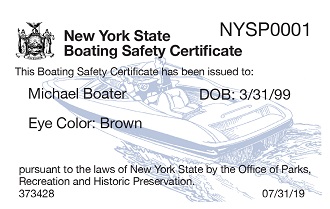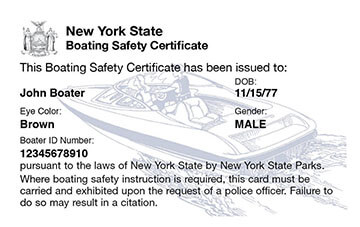Boat License Age, Boating Age By State: Know the Requirements
Navigating the waters requires knowledge and responsibility. Boat license age varies by state, impacting who can legally operate a vessel.
Understanding the age requirements for boating licenses is essential for anyone interested in boating. Each state in the U. S. Has its own set of rules and regulations regarding the minimum age for obtaining a boating license. This can be confusing for new boaters or parents looking to introduce their kids to boating.
We will explore the different boating age requirements by state. This will help you understand what you need to get started on the water safely and legally. Let’s dive in and see what your state requires for boaters.
Boat License Age Requirements
Understanding the boat license age requirements is essential for safe and legal boating. Different states have varying rules on the minimum age and types of licenses needed. Knowing these details can help you stay compliant and ensure a safe boating experience.
Minimum Age
The minimum age to obtain a boat license varies by state. Below is a table that summarizes the minimum age requirements for several states:
| State | Minimum Age |
|---|---|
| California | 16 years |
| Florida | 14 years |
| New York | 14 years |
| Texas | 13 years |
Many states also require boaters under a certain age to complete a boating safety course. This ensures young operators have the knowledge needed to navigate the waters safely.
License Types
There are different license types based on the boat you wish to operate. Here are some common types:
- Personal Watercraft License: Required for jet skis and similar watercraft.
- Motorboat License: Needed for operating motorized boats.
- Sailing License: Necessary for sailboats and other wind-powered vessels.
Each license type may have additional requirements, such as passing a safety course or having supervised boating hours. These rules help ensure that boaters are well-prepared and knowledgeable.

Credit: wow.uscgaux.info
Boating Age By State
Understanding the boating age by state is important for safe boating. Each state in the U.S. has its own rules. These regulations determine who can operate a boat. Let’s dive into the specifics of boating ages across different states.
State Regulations
Each state sets its own rules for boating. These regulations ensure safety on the water. Below is a table that highlights the minimum boating age for several states:
| State | Minimum Boating Age |
|---|---|
| California | 16 years |
| Florida | 14 years |
| Texas | 13 years |
| New York | 10 years |
| Michigan | 12 years |
Age Variations
The minimum age to operate a boat varies by state. Some states have more relaxed rules. Other states are stricter. Here are some examples:
- California: You must be at least 16 years old to operate a boat.
- Florida: The minimum age is 14 years, but only for boats under 10 horsepower.
- Texas: Kids as young as 13 can operate a boat with supervision.
- New York: Children 10 years or older can operate a boat with adult supervision.
- Michigan: The minimum age is 12, with a boating safety certificate.
These rules help keep boating safe. Always check your state’s regulations before heading out on the water.
State-specific Boating Laws
Boating laws in the United States vary by state. Each state has its own age requirements for operating a boat. Some states require a boating license, while others do not. Understanding these laws is crucial for safe and legal boating. Let’s explore the state-specific boating laws in California and Florida.
California
In California, boaters need a California Boater Card. This card is mandatory for anyone operating a motorized vessel. The minimum age to get this card is 16 years. Younger boaters, aged 12 to 15, can operate with adult supervision. Boaters must carry the card while operating a vessel. Failing to show the card can lead to fines. California also requires boaters to complete a safety course. This course covers essential boating rules and practices.
Florida
Florida has specific rules for young boaters. Anyone born on or after January 1, 1988, must have a Boating Safety Education Identification Card. The minimum age to operate a boat alone is 14 years. Younger individuals can operate under adult supervision. Florida’s boating safety course is available online and in person. Completing this course is essential for obtaining the identification card. Boaters must keep the card with them while boating. Failure to present the card can result in penalties.
Youth Boating Safety
Youth boating safety is crucial for ensuring a safe and enjoyable experience on the water. Many young boaters are eager to explore the waves, but safety should be the top priority. Proper education and supervision can help prevent accidents and promote responsible boating behavior. Here are some key aspects to consider for youth boating safety.
Safety Courses
Taking a safety course is essential for young boaters. These courses teach the basics of boating, including rules, regulations, and emergency procedures. Many states require young boaters to complete a safety course before operating a boat. These classes often cover navigation rules, the importance of wearing life jackets, and how to handle different weather conditions. Completing a safety course helps young boaters feel confident and prepared.
Parental Supervision
Parental supervision plays a significant role in youth boating safety. Parents should always accompany young boaters on the water. They can guide and monitor their actions, ensuring they follow safety rules. Supervision also helps in case of emergencies. Parents can teach practical skills and provide immediate assistance if needed. By staying involved, parents can foster a safe and enjoyable boating experience for their children.
Age Restrictions For Different Vessels
Understanding the age restrictions for different vessels is crucial for boating safety. Different states have specific regulations based on the type of vessel. This section breaks down the age requirements for motorboats and personal watercraft.
Motorboats
Age restrictions for operating motorboats vary by state. Generally, younger boaters need supervision.
| State | Minimum Age | Supervision Required |
|---|---|---|
| California | 16 | Yes, for 12-15 years old |
| Florida | 14 | Yes, for under 14 |
| Texas | 13 | Yes, for under 13 |
Personal Watercraft
Personal watercraft like jet skis have stricter age rules. Youthful operators often need adult supervision.
- California: Minimum age is 16, supervision needed for 12-15 years old.
- Florida: Minimum age is 14, supervision required for under 14.
- Texas: Minimum age is 13, supervision needed for under 13.
Always check local laws before heading out. Boating safety ensures fun and secure experiences.

Credit: www.nasbla.org
Impact Of Federal Laws
Federal laws play a significant role in determining the boat license age and other boating regulations. These laws ensure safety and uniformity across all states. Although states have their own rules, federal regulations provide a foundational framework. Understanding these laws helps in navigating the complexities of boating requirements.
Coast Guard Regulations
The U.S. Coast Guard enforces many of the federal boating regulations. One of their main responsibilities is ensuring all boaters meet specific safety standards. The Coast Guard requires boaters to carry safety equipment on board. This includes life jackets, fire extinguishers, and signaling devices.
Another key area is age requirements. The Coast Guard mandates that boat operators must be at least 16 years old to operate a vessel powered by more than 10 horsepower. This rule ensures young operators have the maturity and skills needed to handle powerful boats.
Interstate Boating
Boating across state lines can be complicated. Federal laws simplify this by setting a standard that all states follow. For instance, a boater licensed in one state can usually operate in another state without getting a new license. This is due to the Reciprocity Agreement among states.
However, boaters should still check local state regulations. Some states have additional requirements, such as mandatory boating safety courses. These courses are beneficial for all boaters, regardless of age or experience.
Here is a brief table highlighting the main federal regulations:
| Regulation | Description |
|---|---|
| Minimum Age | 16 years for operating vessels over 10 horsepower |
| Safety Equipment | Life jackets, fire extinguishers, signaling devices |
| Reciprocity Agreement | Allows operation across state lines with existing license |
Obtaining A Boating License
Getting a boating license is essential for anyone who wants to sail legally. Each state has its own rules and regulations. The process involves a few steps that ensure you are ready to navigate the waters safely. Below, we break down the application process and the required documentation needed to obtain your boating license.
Application Process
The application process for a boating license varies by state. Generally, it involves the following steps:
- Complete a boater education course approved by your state.
- Pass the final exam for the course.
- Submit your application to the state’s boating authority.
- Pay the required fees.
Some states may offer online courses, while others require in-person attendance. Be sure to check your state’s specific requirements.
Required Documentation
When applying for a boating license, you will need to provide certain documents. Here is a list of common required documentation:
- Proof of identity (e.g., driver’s license, passport).
- Proof of residency (e.g., utility bill, lease agreement).
- Certificate of completion for a boater education course.
- Payment for the licensing fee.
Some states might ask for additional documents. Always check your state’s specific requirements before you apply.
Renewing A Boating License
Keeping your boating license up-to-date is crucial for staying compliant with state laws. Each state has specific rules for renewing a boating license. Knowing the renewal periods and requirements can help ensure you never miss a deadline.
Renewal Periods
The renewal periods for boating licenses can vary by state. Some states require annual renewals, while others may offer multi-year options. It’s essential to check your state’s specific guidelines.
| State | Renewal Period |
|---|---|
| California | Every 5 years |
| Florida | Every 4 years |
| New York | Every 3 years |
Renewal Requirements
Renewal requirements also differ from state to state. Generally, you will need:
- Completed renewal application form
- Proof of identity
- Payment for the renewal fee
Some states may require a boater safety course or a recent photograph. Always verify with your local boating authority to ensure you meet all renewal requirements.
For example, in California, you need to complete a boater safety course if your license has been expired for over a year. In Florida, you may need to provide proof of residency. New York requires a recent photograph and proof of identity.
Staying informed about your state’s renewal periods and requirements will help you keep your boating license valid. This ensures you can enjoy boating without any legal interruptions.

Credit: www.boat-ed.com
Frequently Asked Questions
What Is The Minimum Age For A Boat License?
The minimum age for a boat license varies by state. Generally, it ranges from 12 to 18 years old. Always check local regulations.
Can Teens Operate A Boat Alone?
Teens can operate a boat alone depending on state laws. Some states require adult supervision until a certain age.
Do All States Require A Boat License?
Not all states require a boat license. Some states mandate boating safety courses instead. Check specific state requirements.
Are There Age Restrictions For Jet Skis?
Yes, age restrictions for jet skis vary by state. Most states require operators to be at least 16 years old.
Conclusion
Understanding boat license age requirements is crucial for safe boating. Each state has its own rules. Always check local laws before setting sail. Being informed helps ensure fun and safety on the water. Stay updated with the latest regulations. Safe boating practices protect everyone.
Enjoy your time on the water responsibly. Happy boating!



